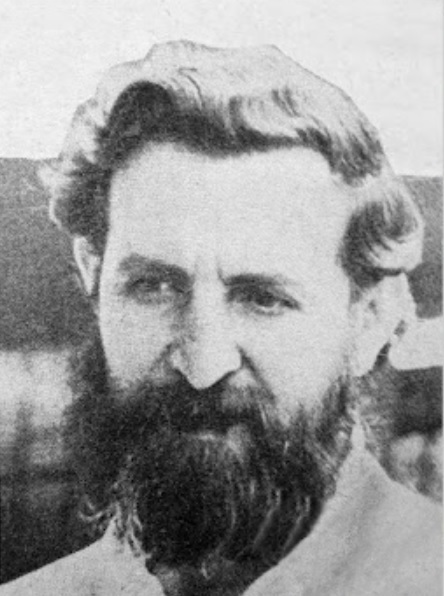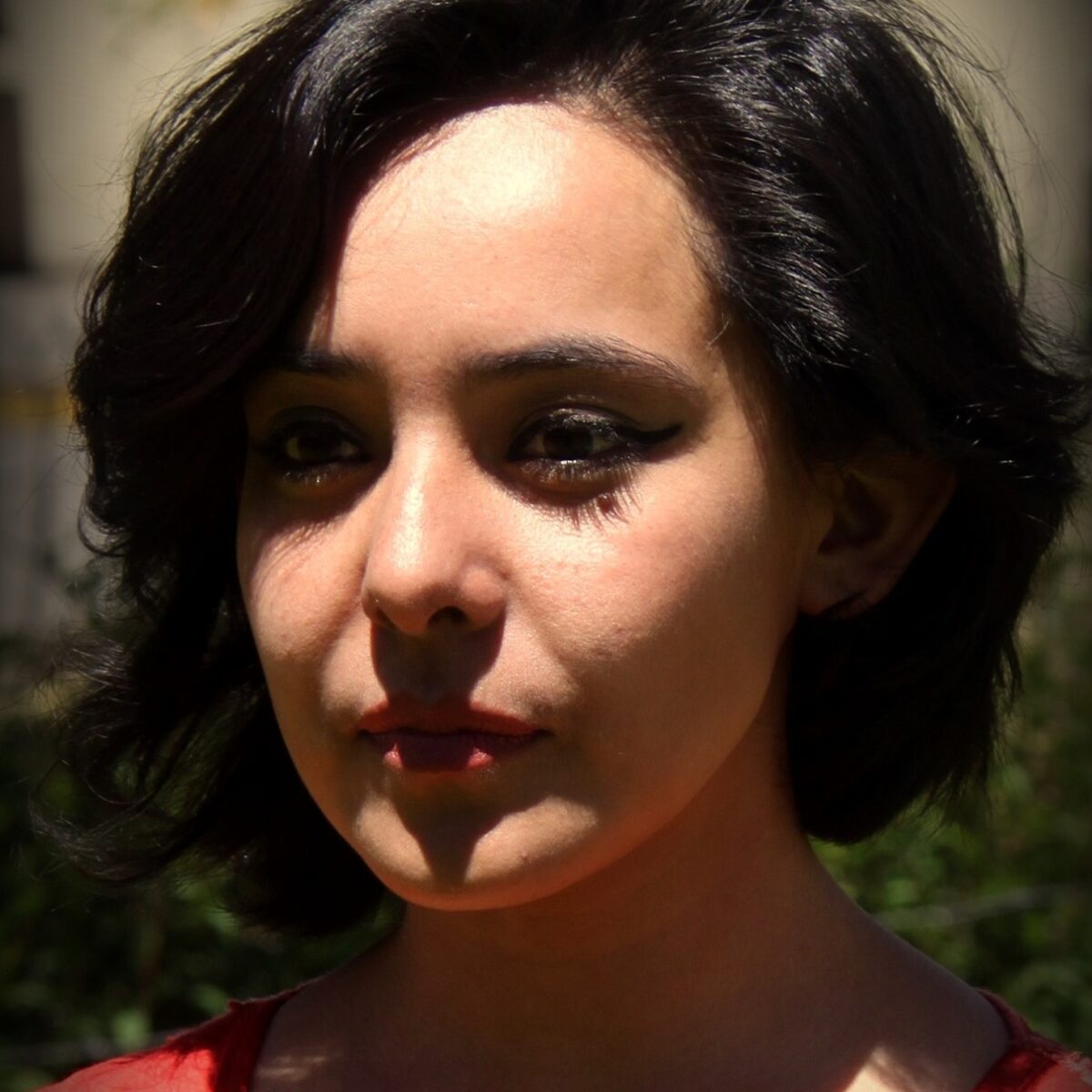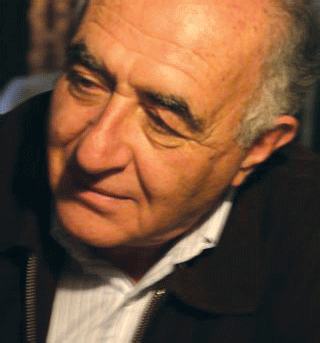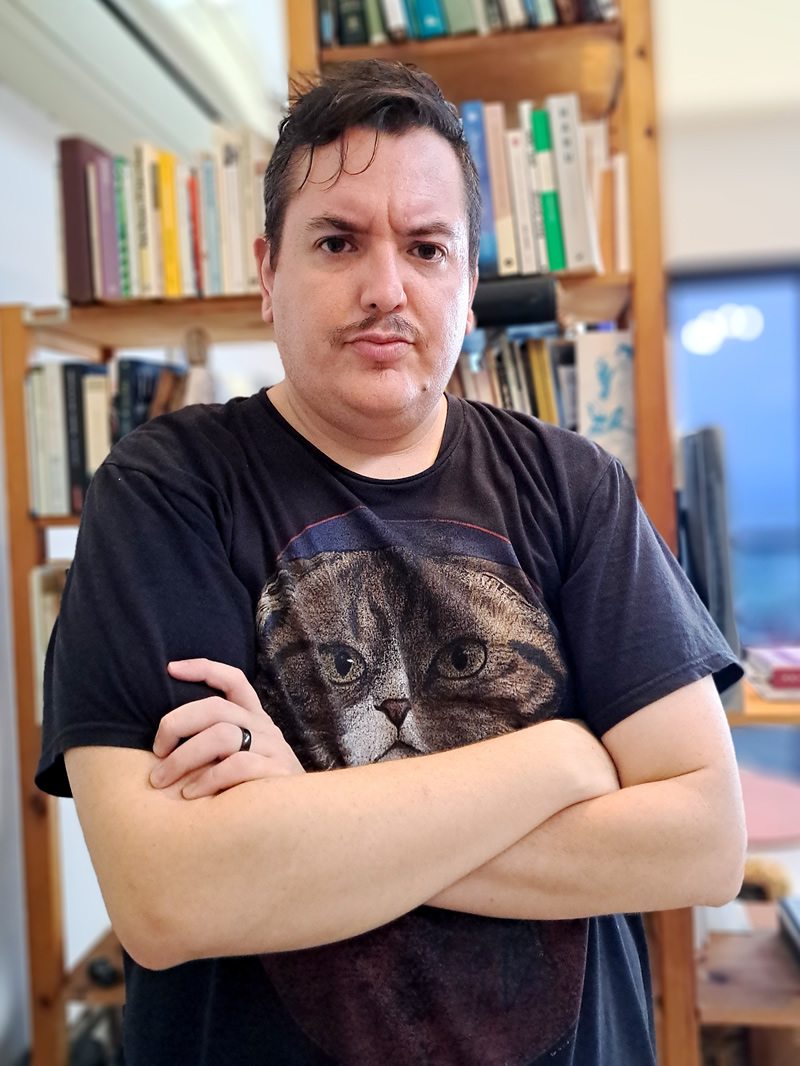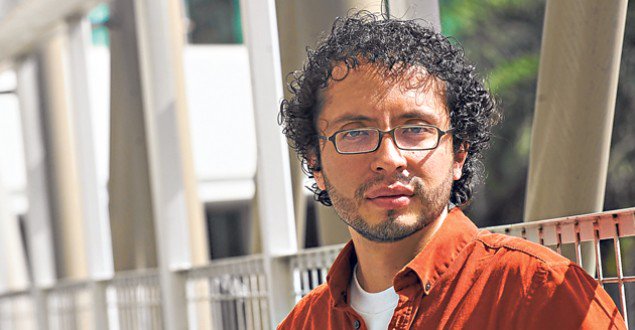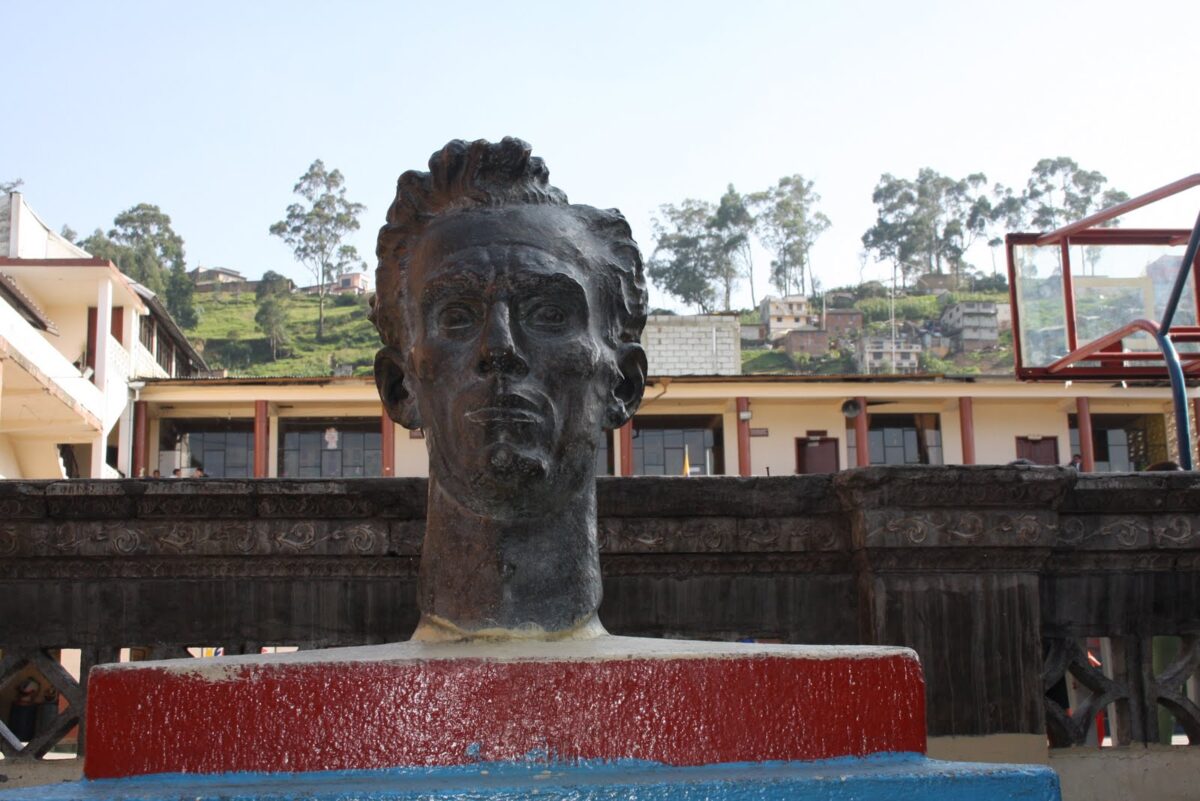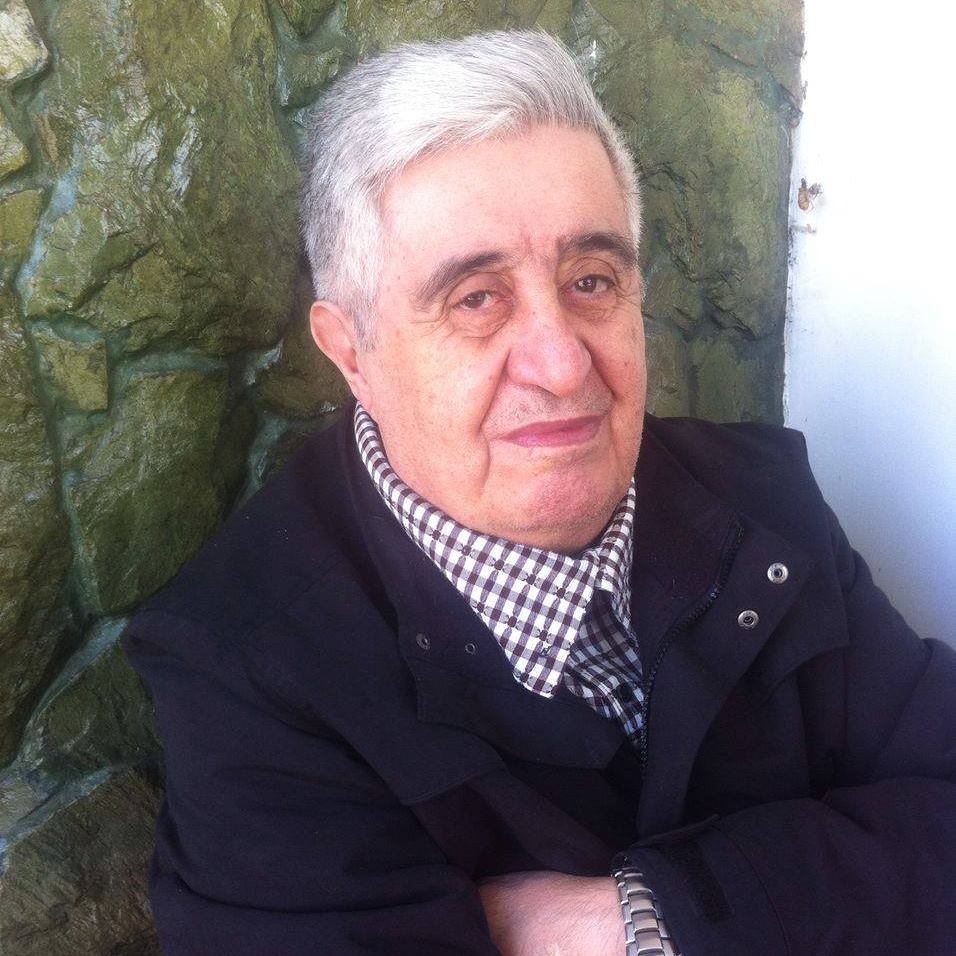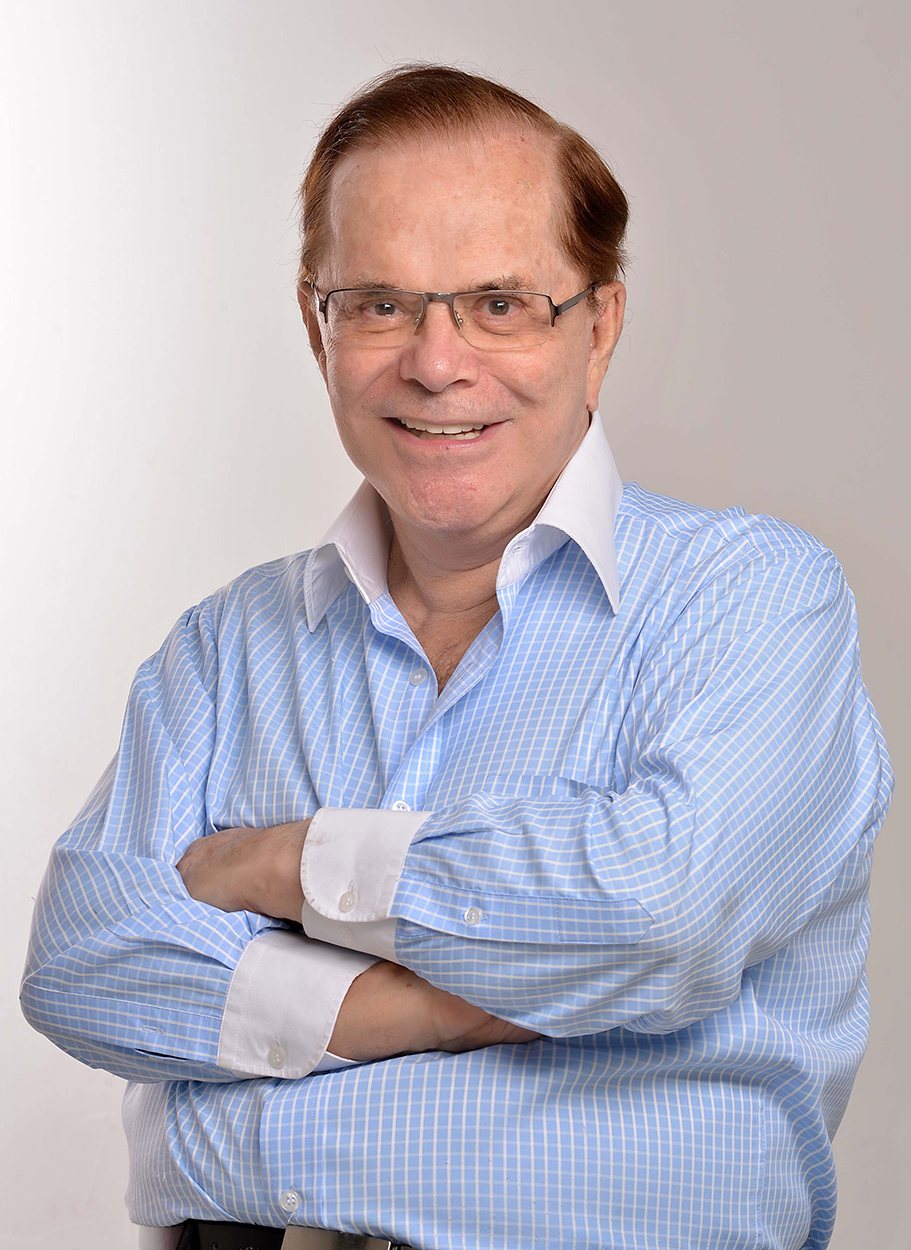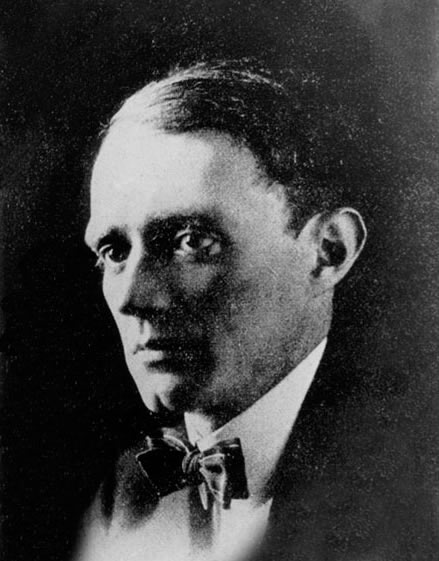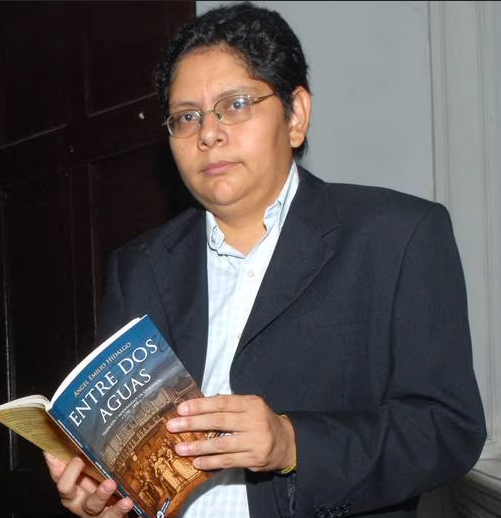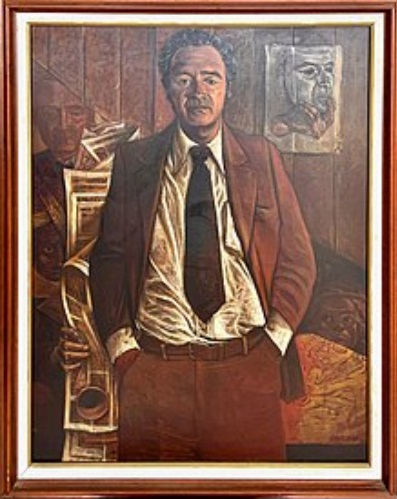Rafael Larrea Insuasti (Quito, 1942 – Ibidem, April 22, 1995) was an Ecuadorian poet, journalist, political essayist, editor, songwriter, music composer, and social activist. He is known as a social and revolutionary poet who was a member of the Central Committee of the Marxist-Leninist Communist Party of Ecuador (PCMLE). For over 20 years, he was the editor-in-chief of the Party’s newspaper, En Marcha, and created the PCMLE’s first propaganda manual. In the 1960s, along with other young leftist poets, he founded the Tzántico group. His poetry books include “Levantapolvos” (1969), “Nuestra es la vida” (1978), “Campanas de bronce” (1983), “Bajo el sombrero del poeta” (1988), “Nosotros, la luna, los caballos” (1995), and “La casa de los siete patios” (1996, published posthumously). In addition to political activity, Larrea graduated as a journalist from the School of Information Sciences of the Central University of Ecuador and was a language teacher. His political, cultural, and literary writings were collected in a book entitled, “Escritos polticos” (2007), published by the PCMLE Commission for Art and Culture. He also penned a number of popular songs, such as “Capishca de la Libertad,” “La Negra Clara Inés,” and others. A public basic education school in Duran, Ecuador, bears his name.
Continue reading “Rafael Larrea Insuasti”Month: February 2023
Katerine Ortega
Katerine Ortega (Quito, 1986) is an Ecuadorian poet, short story writer, and audiovisual communicator. Her works include: “Somos fuego” (2012), (a compilation of poems by various poets), “Naranja entera” (micropoems), La promesa” (videopoems), and she also contributed to the books “Ciencia y simbólica andina ecuatorial” and “Loma Grande: Memoria Histórica y Cultural” (section on mythology). Her stories and poetry have appeared in literary magazines such as Sapo (Chile) and Matapalo (Ecuador), as well as the anthology “Amor y soledad” (Spain). She was part of the literary workshops of the Benjamín Carrión House of Ecuadorian Culture, the Ecuadorian Society of Writers, Kafka Escuela de Escritores, among others. In 2020, she released “Tarasca,” her first collection of short stories.
Continue reading “Katerine Ortega”Modesto Ponce Maldonado
Modesto Ponce Maldonado (Quito, 1938) is an Ecuadorian novelist, short story writer, and businessman. He began writing fiction in his later years. At the age of 60, he published his first collection of short stories, “También las arcillas” (1997), which was followed by a novel, “El palacio del diablo” [The Devil’s Palace] (2005), which won the Joaquín Gallegos Lara Prize for best novel of the year. The novel’s title was taken from the name of a brothel that formerly stood in colonial Quito’s La Ronda neighborhood. Using the pen name Sergio Lozada, his second novel, “La casa del desván,” was shortlisted for the prestigious Premio Iberoamericano Planeta-Casa de América de Narrativa award. The novel, released by Editorial Planeta in 2008, is a first-person account of a schizophrenic man’s thoughts while he is institutionalized for his condition. In 2017, his novel “Adela” received honorable mention at the La Linares Short Novel Award. Ponce has also contributed to various literary magazines, including El Búho, Eskeletra, Kipus and Letras del Ecuador.
Continue reading “Modesto Ponce Maldonado”Jorge Luis Pérez Armijos
Jorge Luis Pérez Armijos (Guayaquil, 1987) is an Ecuadorian, poet, essayist, editor, and translator. He has authored 4 poetry books, including “Rimas sin sarcasmos” (2012), “Primavera en invierno” (2014), “Lira bien temperada” (2016), and “Clases de catalán” (2018). His best known work is perhaps “Aquel que pudo ver lo Profundo” (2019), a poetic translation of the Epic of Gilgamesh. In 2020 he published, “La risa: Ensayo sobre el significado de lo cómico,” a French-to-Spanish annotated translation of “Le Rire. Essai sur la signification du comique” [Laughter: An Essay on the Meaning of the Comic], a collection of 3 essays by French philosopher Henri Bergson first published in 1900 in the French literary magazine Revue de Paris. He has also published a translation of Shakespeare’s Sonnets, entitled “Variaciones Shakespeare” (2017), and Shakespeare’s narrative poem, “Venus y Adonis” (2021).
Continue reading “Jorge Luis Pérez Armijos”Wladimir Chávez
Wladimir Alfredo Chávez Vaca (Quito, 1977) is an Ecuadorian novelist, short story writer, and academic. He has lived in Norway for over two decades and currently serves as an associate professor of Spanish and Latin American literature at Østfold University College. Chávez’s literary work, which often explores themes of migration, identity, and exile, has garnered significant recognition. His short story collection En el corazón del silencio [In the Heart of Silence] won the Biennial Pichincha Prize in 2014, and his novel El olor de las flores quemadas [The Smell of Burning Flowers] was awarded the Miguel Riofrío National Literary Award in 2018. Some of his works have been translated into English and Italian.
Continue reading “Wladimir Chávez”Gustavo Lemos Ramírez
Gustavo Lemos Ramírez (Vinchoa, Guaranda, February 17, 1877 – Guayaquil, 1936) was an Ecuadorian philologist, grammarian, researcher, academic, and teacher. Virtually self-taught, Gustavo Lemos is considered one of the greatest specialists on Ecuadorian Spanish from the first half of the 20th century. He published books on Ecuadorian semantics and phonetics. In 1928, he was inducted into the Ecuadorian Academy of Language. A public school in Guayaquil bears his name.
Continue reading “Gustavo Lemos Ramírez”Alberto Ordoñez Ortíz
Alberto Ordoñez Ortíz (Cuenca, March 16, 1942 – Ibidem, August 29, 2022) was an Ecuadorian poet, writer, and lawyer. During the last years of his life he worked as an opinion columnist for the daily El Mercurio of Cuenca. From 1962 – 2004 he published at least 10 poetry books. As a poet, he won various awards, including First Prize in the 1963 National Poetry Contest sponsored by the State University of Cuenca, Second Prize in the 1978 Ismael Pérez Pazmiño Poetry Contest for Perfil del hombre y su desvelo, and the First Prizes in the 1992 Poetry Contests promoted by the Ecuadorian Social Security Institute of Ecuador. In 2003, the Municipality of Cuenca awarded him the “Fray Vicente Solano” Award, an award given to the best poet of the year in Cuenca, and in that same year, the National Congress of Ecuador awarded him the “Vicente Rocafuerte” Prize, in recognition of his literary work and contribution to Ecuadorian poetry.
Continue reading “Alberto Ordoñez Ortíz”Eduardo Muñoz Valdebenito
Eduardo Muñoz Valdebenito was an Ecuadorian poet who in 1977 won 3rd Prize in the Ismael Pérez Pazmiño Poetry Contest of the newspaper El Universo for his poem “La intimidad.” His prize-winning poem was published in “Poesía ecuatoriana del siglo XX” (Casa de la Cultura Ecuatoriana, 1979).
Continue reading “Eduardo Muñoz Valdebenito”Bernard Fougères
Bernard Fougères, born Bernard Victor Theophile Isidore Fougères Julliot (France, 1934 – Guayaquil, May 5, 2018) was a French journalist, poet, and TV host who resided in Ecuador since May 1, 1965. His poem “Guayaquil de mil hojas” [Guayaquil of a thousand pages] won the 2nd Prize of the 1977 Ismael Pérez Pazmiño Poetry Contest. His winning poem was published in the anthology “Poesía ecuatoriana del siglo XX: Años 1976, 1977, 1978” (Casa de la Cultura Ecuatoriana, Núcleo del Guayas, 1976). He worked as a TV personality for more than 50 years in shows such as El Show de Bernard and Bernard en la noche.
Continue reading “Bernard Fougères”Gonzalo Portugal Proaño
Gonzalo Portugal Proaño (19??-????) was an Ecuadorian poet. In the 1970’s his poems appeared in a few poetry anthologies published by the House of Ecuadorian Culture. In 1976 he won 3rd Prize in the Ismael Pérez Pazmiño Poetry Contest for his poem “Escorzo del perfecto desterrado.” His prize-winning poem was published in “Poesía ecuatoriana del siglo XX” (Casa de la Cultura, Núcleo del Guayas, 1979).
Continue reading “Gonzalo Portugal Proaño”Remigio Romero y Cordero
Remigio Romero y Cordero (Cuenca, June 13, 1895 – Quito, 1967) was an Ecuadorian poet, lawyer, professor, parliamentarian and journalist. He was the son of the poets Remigio Romero León and Aurelia Cordero Dávila. After graduating from high school at Benigno Malo National School, he enrolled in the Faculty of Jurisprudence at the University of Cuenca, where he went on to earn the degrees of Doctor of Jurisprudence and Lawyer of Ecuador’s Courts of Justice. He grew up and received his initial education under the protection of the political and social reforms brought about by the Liberal Revolution. He earned significant acclaim due to his brilliant poetry, which gained him the honor of being crowned poet at the Quito Poetry Festival in 1933.
Continue reading “Remigio Romero y Cordero”Ángel Emilio Hidalgo
Ángel Emilio Hidalgo Ortiz (Guayaquil, 1973) is an Ecuadorian historian, a poet, a professor at Guayaquil’s University of the Arts (UArtes) since 2014, and the director of the Guayaquil Municipal Library since 2021. His poetry collections include “Beberás de estas aguas” (1997, First Prize in the Ismael Pérez Pazmiño National Poetry Contest), “El trazado del tiempo” (2003, honorable mention in the National Literature Contest of the Guayaquil Municipality), “Fulgor de la derrota” (2010), and “Acapulco so close” (2021). Hidalgo’s poems have been published in various Ecuadorian and Latin American anthologies. such as “Porque nuestro es el exilio” (2006), which features the poetry of three Ecuadorian authors, Ángel Emilio Hidalgo, Luis Carlos Mussó and Ernesto Carrión, as well as Fabián Darío Mosquera, a Colombian poet living in Guayaquil. In addition, he is the co-author of more than 20 books of historical and cultural essays and is a member of Ecuador’s National Academy of History.
Continue reading “Ángel Emilio Hidalgo”Carlos Villasís Endara
Carlos Alfonso Villasís Endara (Bahía de Caráquez, November 17, 1930 – Quito, January 27, 2023) was an Ecuadorian writer, poet, playwright, and renowned art critic. He was the founder of the literary group “Galaxia,” member of the “Caminos” group, vice president of the Cotopaxi chapter of the House of Ecuadorian Culture, member of the Legal-Literary Society, and an honorary member of the Association of Plastic Artists of Ecuador. He was known by his family and friends as “Carlucho.”
Continue reading “Carlos Villasís Endara”Teodoro Vanegas Andrade
Teodoro Vanegas Andrade (Cuenca, December 21, 1926 – 2002) was an Ecuadorian novelist, journalist, editor, and poet who was a member of the Elan Group. He authored 4 poetry books, “Estación del abismo,” “Ubicación del hombre,” “Señales de la Erranza” and “El libro de los avatares” which was published posthumously. Some of his poems have been translated into Russian, Italian, French and English. He was a columnist for El Expreso newspaper, and was the editor of the literary magazines Antorcha and Paz. In 1971, his novel “La noche estevada” received first mention at the novel contest held by the journal El Universo. He was a member of the House of Ecuadorian Culture.
Continue reading “Teodoro Vanegas Andrade”Francisca Ortega Salazar
Francisca Ortega Salazar (1933 – Unknown) was an Ecuadorian poet and children’s literature author. In 1984, she won the Ismael Pérez Pazmiño National Poetry Contest for her poem “Salinas.” Her poetry books include “Poemas para Orfeo” (1978) and “Puente” (1957). She also wrote “Lucecita” (1979), a children’s book.
Continue reading “Francisca Ortega Salazar”
